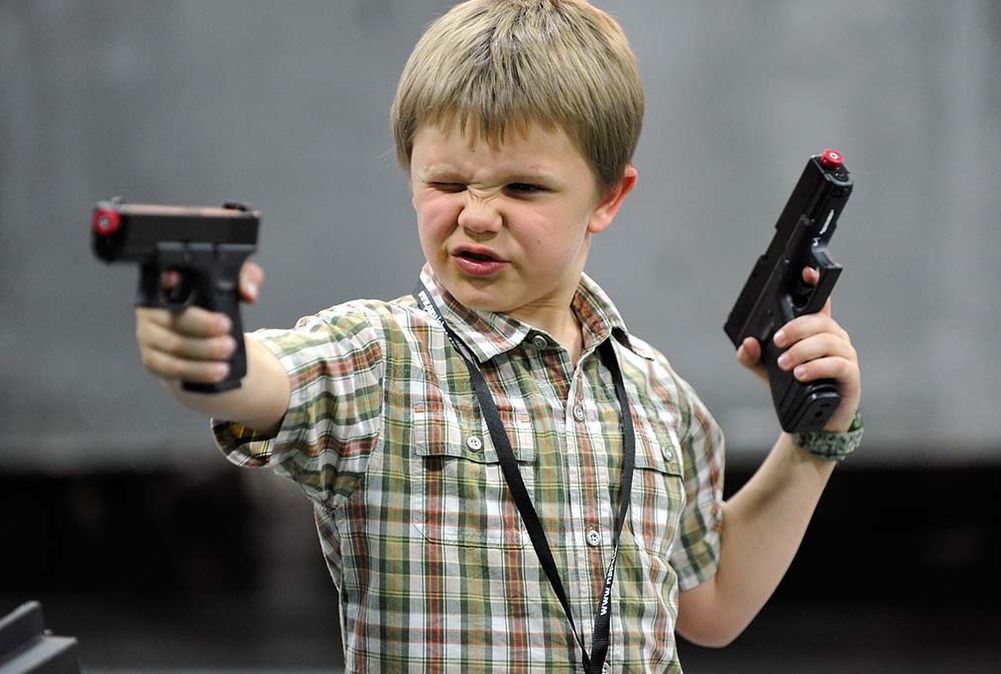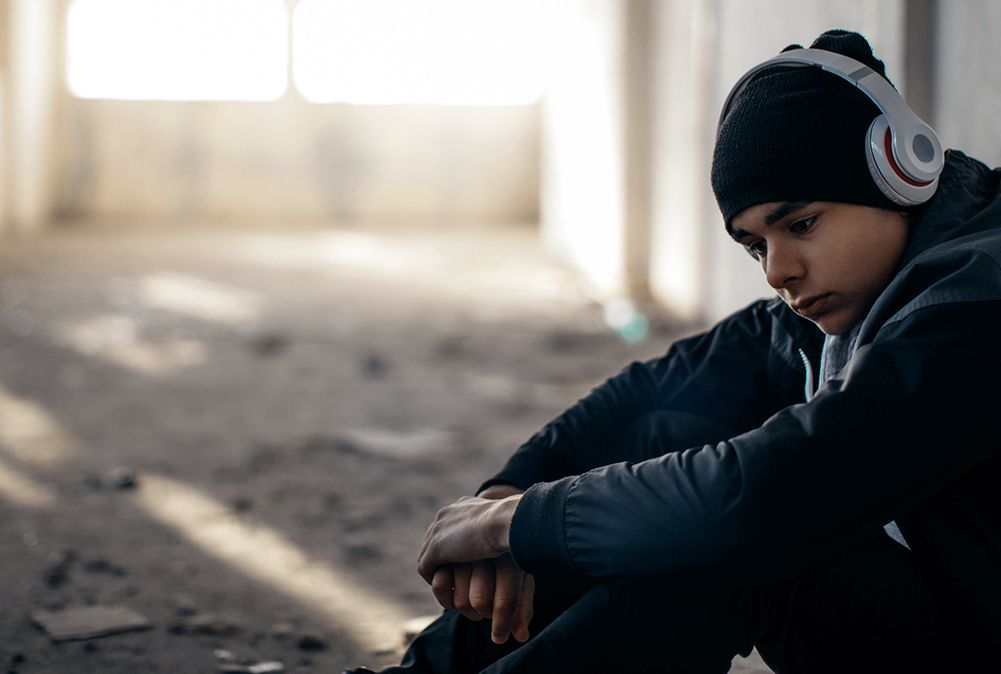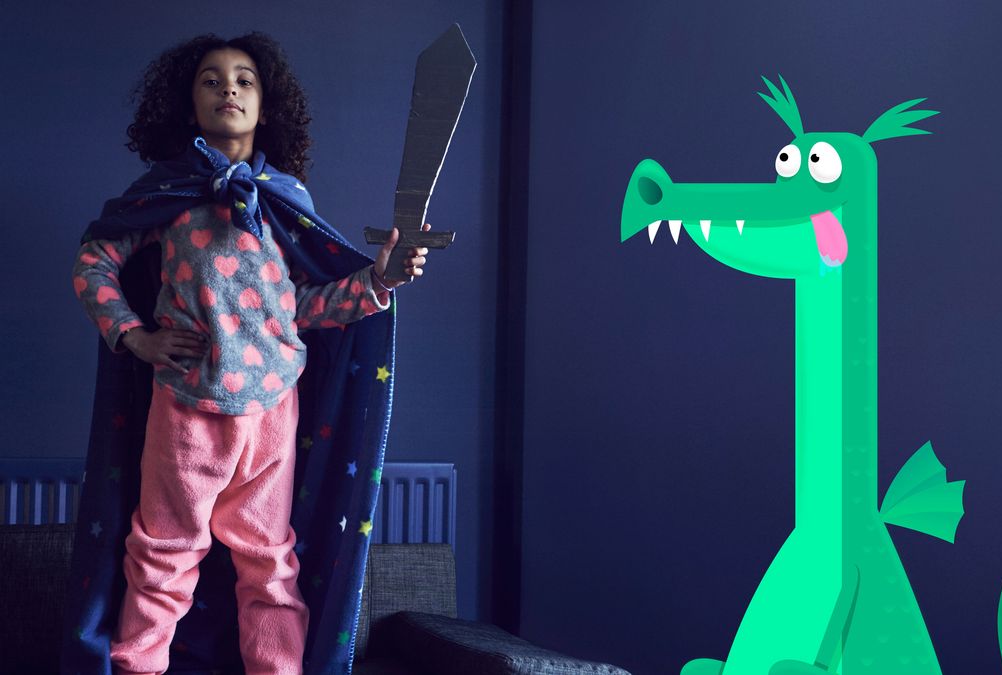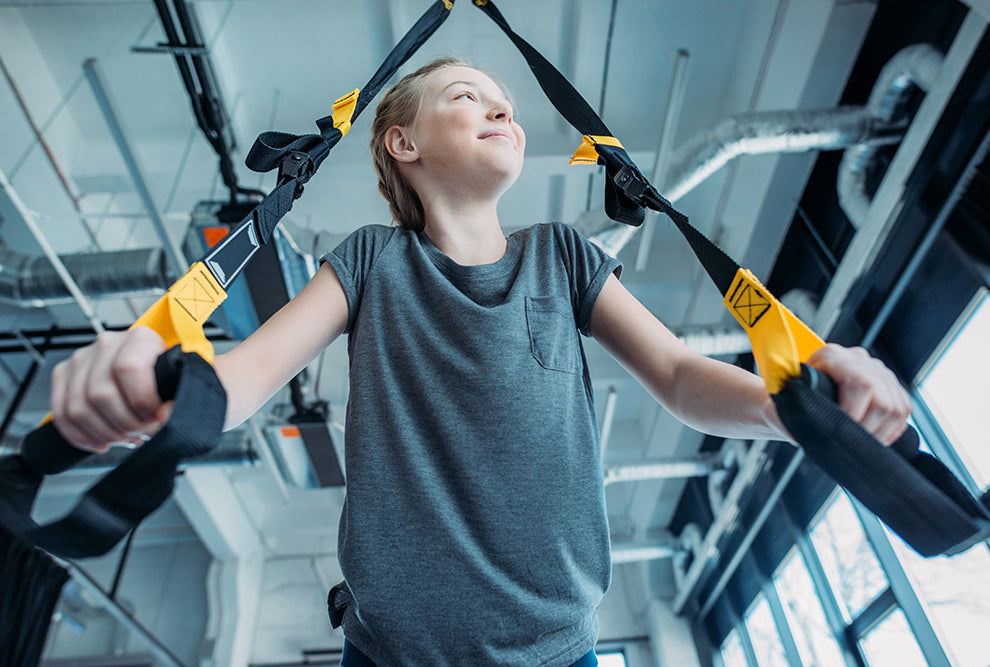
If you happen to comply with the newest information about Nice Britain’s royal household, you in all probability have heard concerning the controversy that erupted when Prince George — the 4-year-old son of Prince William, the Duke of Cambridge, and his spouse, Kate Middleton — was seen on the sidelines at a polo match, enjoying with a toy handgun.
For a lot of, Prince George’s recreation of cops-and-robbers raised a query that is been troubling dad and mom increasingly more, in an age when mass shootings appear to happen with horrifying frequency. Ought to younger kids be allowed to play with toy variations of the weapons which might be killing different youngsters and adults? In an article for Vogue, author Michelle Ruiz described a dialog she had with a fellow mom who requested: "What are we feeding our youngsters, within the metaphorical sense, once we hand them weapons to play with?"
The Public Notion
After a latest college capturing in Indiana, a reader’s letter to the Indianapolis Star voiced an identical sentiment. "Youngsters shouldn’t have even cap pistols or toy weapons to play with as a result of it teaches the unsuitable lesson," he wrote. And here’s a 2017 Huffington Publish article from Wendy Kennar, a former instructor, who explains "Why Our Household Would not Permit Toy Weapons."
No less than one retailer has already stopped promoting some kinds of toy weapons. In February, when Walmart introduced that it could elevate the acquisition age for firearms at its shops to 21, the corporate additionally mentioned that it could take away from its web site objects "resembling assault-style rifles," together with toys. (Walmart stopped promoting precise "trendy sporting rifles," together with the AR-15, again in 2015.)
For all of the nervousness and outrage it stimulates, there’s comparatively little scientific analysis on the impact that enjoying with toy weapons has upon kids. And though some research recommend it might be linked to aggressive habits in childhood, no clear connection has been established between childhood play with toy weapons and grownup attitudes or propensity for violence. Two psychologists who’ve completed analysis on kids and toy weapons assume that parenting is a way more necessary indicator of aggressive habits.
Charles W. Turner, a psychologist on the employees of the Oregon Analysis Institute, has greater than 40 years of expertise conducting therapy and prevention analysis on kids, adolescents and younger adults with habits issues. Again within the mid-Seventies, he and colleague Diane Goldsmith printed one of many earliest papers on the topic, during which they in contrast a gaggle of youngsters who performed with toy weapons to a different group who performed with toy airplanes, and youngsters who performed with different toys. All have been noticed for indicators of delinquent habits, resembling aggression or rule-breaking.
"The aim of the airplanes was to regulate for the truth that you are introducing a novel toy," Turner explains. "Is it the novelty of the toy resulting in the performing out, or whether or not it is one thing particular concerning the gun?"
Turner and Goldsmith discovered that toy weapons produced a "reliably larger" price of delinquent habits than the typical of the toy airplanes and the opposite toys, although the toy airplanes additionally elevated the speed of children misbehaving as nicely.
However right this moment, Turner, who moved on from what he calls "hypothetical research" to finding out precise younger offenders, cautions in opposition to studying an excessive amount of into his early work. From a sensible standpoint, he says, "it could be onerous to have a look at whether or not enjoying with weapons as a toddler affected attitudes as an grownup."
Primarily based on his personal work in addition to that of different researchers, he suspects that "enjoying with weapons as a toddler is one small a part of a much bigger image of what results in grownup aggressive habits. It is a small, almost trivial half." He places extra weight on different influences, resembling how a household pertains to a toddler and their sample of interactions.
In a examine printed within the journal Early Schooling and Growth in 1992 researchers Malcolm W. Watson and Ying Peng noticed 36 3-to-5-year-old kids in free play in a daycare middle, and coded their habits for the quantity of actual aggression, fake aggression, rough-and-tumble play, and non-aggressive fake play. In addition they had dad and mom fill out a questionnaire to assemble knowledge resembling whether or not youngsters performed with toy weapons at house — 56 p.c, principally boys, did — in addition to whether or not they watched TV applications with aggression and the quantity of bodily punishment that oldsters used for self-discipline.
The researchers discovered that toy gun play, together with parental punishment, have been related to a better degree of actual aggression, although not with fake aggression.
A Mixture of Components
Watson, the George and Frances Levin Professor of Psychology at Brandeis College, cautions in an e-mail that "there are such a lot of components that act as antecedents to actual aggression that this one examine couldn’t consider the complete story. Numerous components could work together to extend the probability of aggression in kids and youngsters creating long-term aggressive tendencies."
Watson explains that the examine was designed to pit the cathartic idea of aggression, during which aggressive fantasy play would possibly cut back precise frustration and aggression, with the cuing idea, during which toy weapons and aggressive play would act as cues and apply for actual aggression.
"The extra toy gun play that was used, together with play with toy weapons, the extra actual aggression boys confirmed of their preschool," he writes. "Boys confirmed far more toy gun play than did ladies, and doubtless due to this, there was no relation discovered between toy gun play and actual aggression in ladies. Apparently, we additionally discovered that the extra toy gun play that was used, the much less non-aggressive fake play (together with fake aggression) kids confirmed. And non-aggressive fake play is seen as a great factor for kids.
"So, in impact, there was no proof for a cathartic impact, however there was proof for a possible cuing impact. Taking part in with toy weapons could also be elevated when some kids already present extra aggression, or reciprocally actual aggression could also be cued and elevated when kids play extra with toy weapons. It simply did not appear that something good got here from enjoying with toy weapons."
Corporal Punishment Extra Determinative
However Watson additionally notes that the strongest issue that predicted actual aggression in preschoolers — greater than toy weapons and even watching violent TV — was the quantity and frequency of oldsters spanking their youngsters or utilizing different corporal punishment.
"Now we have completed subsequent research that confirmed that kids who have been extra aggressive led to oldsters utilizing extra corporal punishment over time, however that using extra corporal punishment led to much more aggression within the kids," Watson says. "Parental use of corporal punishment was a part of an ongoing unfavorable spiral."
As for taking part in with toy weapons, "Nothing optimistic appears to come back from it, and it might have some unfavorable results (at the very least in boys), however there are different components involving dad and mom which have much more unfavorable penalties," Watson says.
"I feel fake play general has a fantastic affect on kids’s growth and pondering, and so I believe that toy gun play could have long-term penalties, however I additionally suspect that parental attitudes towards weapons and likewise dad and mom’ modeling of aggression can have even stronger influences."
Watson notes that regardless of his misgivings about toy weapons, he selected to not ban them in his own residence, and by no means stopped his 4 sons from fake play with them. However extra necessary, he says: "although we had strict self-discipline, we by no means used corporal punishment with them. That’s the half I notably imagine in."
Now That is Fascinating
In 2003, the USA Basic Accounting Workplace did an exhaustive search of social science journals and publications on the behest of a member of Congress however might discover "no authoritative examine on the attainable long-term results on people of childhood play with toy weapons." A lot of the literature on kids and weapons centered as a substitute of violence in video video games and tv, the GAO report famous.






















